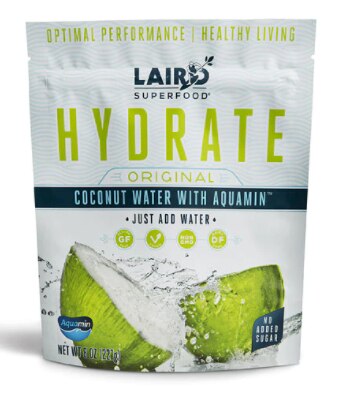Whether your alcohol intake has increased since the start of the pandemic, or you’ve always been someone who imbibes a bit more than you’d like, the new year is a great time to make a commitment (aka resolution) to change unhealthy habits.
While most health organizations say that moderate drinking is ok, meaning one or zero drinks per day for women and two or fewer for men, there have also been studies that counsel against all alcohol. And, for certain populations such as pregnant women and people with a substance abuse disorder or addiction, no amount of alcohol is safe.
Even if you follow the one or two drink a day rule, it’s pretty easy to have an extra drink now and then. And then, now and then can escalate to too many too often. That would be ok if there weren’t so many health and lifestyle issues associated with alcohol.
The benefits of cutting back on drinking
While not all studies point to the need to abstain from alcohol entirely, most people will, in fact, see improvements in their health if they do. Here are some of the benefits of going booze-free that may inspire and motivate you to stay sober. You can look forward to:
Losing weight
Alcohol adds empty calories and sugar to your diet. While a shot of tequila has only 70 calories, a frozen margarita can pack up to 500 calories in a cocktail. In addition to the calories alcohol adds to your diet, it can also stimulate your appetite and reduce your willpower.
Sleeping better
Alcohol interferes with your sleep cycles, making it difficult to sleep through the night. So, while some people find alcohol relaxes them and helps them fall asleep, chances are you’ll wake in the middle of the night, which may leave you tired and irritable the next day. In a survey on those who gave up drinking in January (aka Dry January), 71 % reported having better quality sleep.
Having better sex
Sure, a little alcohol may lower your inhibitions so that you’re friskier. But, too much alcohol can make maintaining an erection challenging for men and increase vaginal dryness for women. On the other hand, sober sex can be satisfying sex.
Having better skin
Alcohol can take its toll on your appearance as well as your health. Drinking leads to dehydration, inflammation and reduced collagen levels in your skin. But, if you give it up, all the damage is reversed. Your skin can become plumper, more elastic and more hydrated.
Decreasing your risk of cancer and cardiovascular disease
Bottom line: According to the CDC, the less alcohol you drink, the lower your risk of developing certain cancers and cardiovascular disease. The more you drink, the higher your risk.
Boosting your brainpower
In the short term, drinking too much can lead to impaired judgment and slurred speech. In the long term, regular to moderate drinking can lead to structural changes in the brain that can affect memory and the ability to concentrate.
How to cut back on drinking
For some, the only way to reduce their alcohol intake is to eliminate it. For many, though, simply cutting back on their drinking can improve their life – dramatically. And for others who want to stop drinking, depending on how much they drink, reducing alcoholic intake gradually may be the best route to a healthy break from booze. Here are some tips for how to quit or cut back safely.
Set a drinking goal
If you’re trying to cut back, set a goal such as one drink a day or cutting back on one drink a day. For example, if you normally consume three drinks on the weekends or daily, cut back to two, and then one. Share your goal with friends and family members.
Don’t keep alcohol in your house
Not having alcohol in your house, like not having sweets, can help you cut down on drinking.
Drink a non-alcoholic beverage in between alcoholic beverages
This tip is especially useful at parties and organized dinners. Try a delicious mocktail in place of an alcoholic beverage.
Drink slowly
If you nurse your drink, you can make it last longer, reducing your temptation to get another.
Find support
Maybe you have a friend who also wants to cut back or quit drinking? Check-in with each other and help keep each other on track. Or, if you don’t have a friend who shares your goal, find an online support group.
Drink with food or after food
Alcohol gets absorbed by food, reducing its effects on your brain and mood. Plus, food makes us full, reducing the desire to top off our fullness with a drink.
Plan for slip-ups
Ideally, we’d set a goal and develop a plan to keep us on track. However, slip-ups or mistakes happen. So, don’t give up or continue to give in to the temptation. Instead, acknowledge your mistake, forgive yourself and get back to your plan.
If you’re a heavy drinker, quitting may send you into withdrawals. This can mean cold sweats, anxiety, nausea, vomiting and uncontrolled shaking. If you are a heavy drinker, consult a doctor or withdrawal specialists to help guide you through this detox period with guidance, support, and possibly medication.


